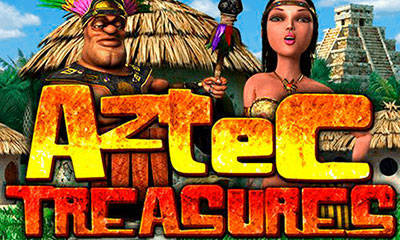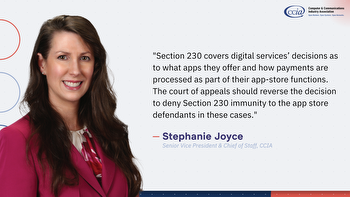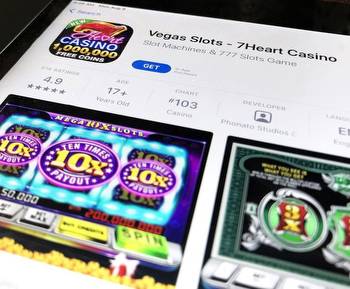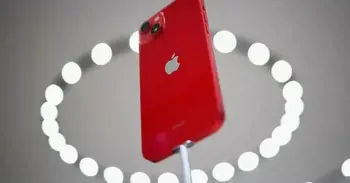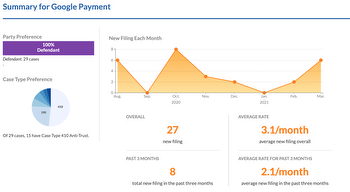Online Gaming: Apple, Meta, Google argue they're not 'bookies' in casino app appeal, ET BrandEquity
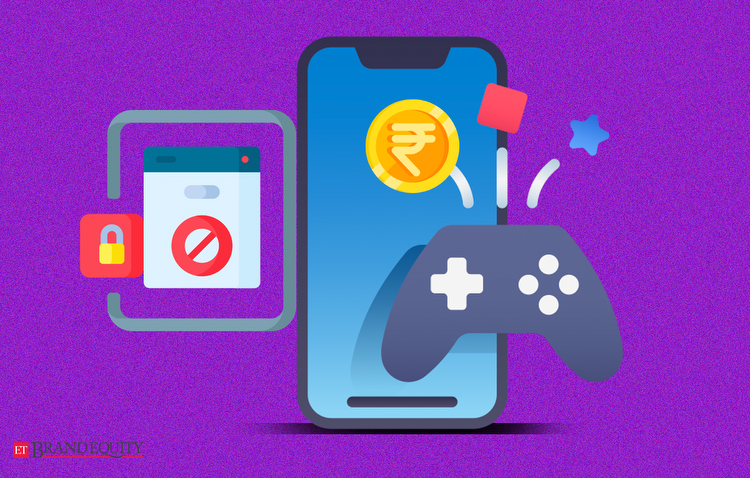
The platforms are appealing a 2022 ruling from U.S. District Judge Edward Davila of San Jose, California, that Section 230 of the Communications Decency Act, which immunizes online publishers for hosting third-party content, does not shield the sites from claims that they essentially acted as "bookies" by facilitating (and collecting a commission on) purchases of virtual chips for use in online casino games.
By Alison Frankel
Apple, Meta and Google warned the 9th U.S. Circuit Court of Appeals this week that if online platforms can be held liable for processing users' purchases of virtual chips sold by casino game apps, the entire internet economy could be at risk.
The platforms are appealing a 2022 ruling from U.S. District Judge Edward Davila of San Jose, California, that Section 230 of the Communications Decency Act, which immunizes online publishers for hosting third-party content, does not shield the sites from claims that they essentially acted as "bookies" by facilitating (and collecting a commission on) purchases of virtual chips for use in online casino games.
The trial judge said that those payment processing claims, asserted in more than a dozen statewide class actions on behalf of casino app users from states with stringent gambling laws, fall outside of Section 230's immunity for online publishers because they involved allegedly unlawful acts by the platforms themselves.
Davila did dismiss plaintiffs' claims that Apple, Alphabet's Google and Meta were liable for offering access to the casino apps and providing the app developers with data and other services to help them target big spenders and retain users.
The judge, as I told you last year, acknowledged that "reasonable minds" might reach different conclusions about the scope of the platforms' immunity under Section 230 in the context of casino apps. The judge, of his own accord, certified his order for interlocutory appeal.
Both sides took him up on that offer. Apple, Meta and Google appealed Davila's decision that they can be liable for processing virtual chip payments. Plaintiffs' lawyers from law firm Edelson brought cross-appeals over their dismissed claims. The platforms' newly filed briefs are the first salvos in an appellate briefing process that won't wrap up until December.
Apple, Meta and Google each filed its own brief, so the appeals are not identical. (Google, for instance, opted not to use the word "bookie.") But all of the filings assert the same basic arguments: Davila wrongly interpreted 9th Circuit precedent from HomeAway.com Inc v. City of Santa Monica - and unless the 9th Circuit overturns his decision, the consequences could be dire.
At worst, the platforms said, every website that offers in-app purchases - including sites like Spotify and Substack, which sell subscriptions - could be exposed to liability whenever a plaintiff claims an injury from an unlawful product.
Apple's lawyers at Weil, Gotshal & Manges said the theory proffered by the casino apps plaintiffs for circumventing Section 230 immunity is "limitless." Meta counsel from Gibson, Dunn & Crutcher and Orrick Herrington & Sutcliffe echoed that argument, warning the 9th Circuit that "clever lawyers" will find ways to use Davila's reasoning to recast claims that would be precluded under Section 230.
"Plaintiffs' wordplay of isolating the transaction from the content itself would offer an easy end-run around this court's existing decisions applying Section 230, none of which makes protection turn on whether the service received compensation in connection with the purchase of challenged third-party content," Meta said.
The platforms argued that because different countries, states and geographical regions have different laws, Davila's reasoning would force them to engage in intensive monitoring of apps and individual users to avert claims that they facilitated illegal conduct by processing payments. Platforms would even need to check on users' geographic location as they interacted with particular apps, Apple said.
"That goes far beyond monitoring," the Apple brief asserted. "That would be Orwellian."
It's also not what Congress intended when it passed Section 230 to protect online publishers, the platforms said. Davila's mistake, they argued, was in failing to treat the platforms as publishers when they processed casino app users' payments for virtual casino chips.
The platforms, explained Google's lawyers at Wilson Sonsini Goodrich & Rosati, did not create the chips sold by the allegedly illegal casino apps. Nor did they create the apps that encourage users to buy the virtual chips. Google merely offered the casino apps the same payment processing services its provides as a publisher, the brief said, so it's impossible to divorce payment processing from the hosting activity Davila found to be immunized under Section 230.
That distinguishes the online gambling case from the conduct at issue in the HomeAway case that Davila relied upon, according to the platforms. The 9th Circuit ruled in that case that Section 230 did not pre-empt a Santa Monica law barring websites from accepting booking fees for certain short-term housing rentals. The sites had argued that the city law would contravene Section 230 by requiring them to monitor online content to be sure they did not offer illegal rentals. The 9th Circuit rejected that contention, concluding that the prohibition addressed the booking, not the online listings.
In the casino app cases, argued Apple, Meta and Google in their 9th Circuit briefs, the platforms have no independent duty, outside of their role as a publisher, to refuse to process in-app payments. Their purportedly illegal conduct, they said, is based entirely on the nature of the casino apps and the virtual chips they sell - a critical difference between HomeAway and the casino cases.
"In HomeAway, the claims did not turn at all on the nature of the third-party content (the online rental listings); whereas here, the claims turn entirely on the nature of the casino-themed video games and virtual chips," Meta asserted. "That distinction is dispositive under Section 230."
I reached out to plaintiffs' lawyers Rafey Balabanian and Jay Edelson of Edelson for comment on the platforms' brief. They didn't respond. Edelson has collected hundreds of millions of dollars in settlements with casino app developers, including a $415 million class settlement approved in June.
Apple, Meta, Google and their lawyers also did not respond to queries.
As I mentioned, there will be a lot more action to come in these appeals and counterappeals at the 9th Circuit. But this week's initial foray proves, if you will excuse the pun, that the stakes in these casino app cases are sky-high.







